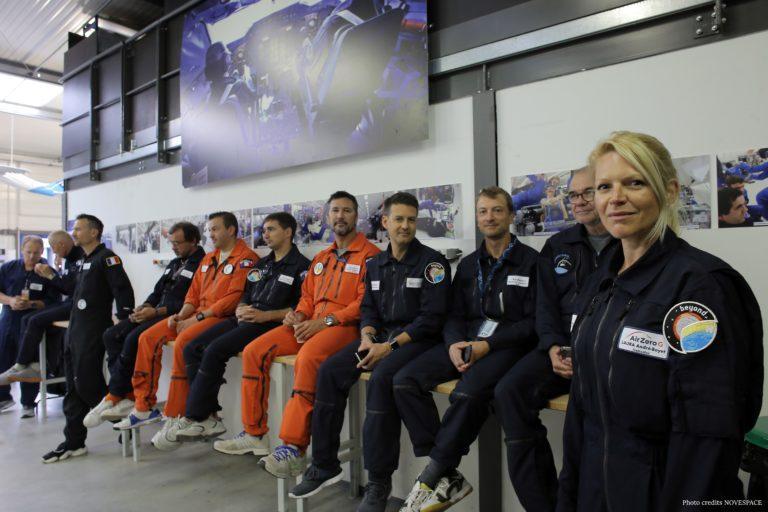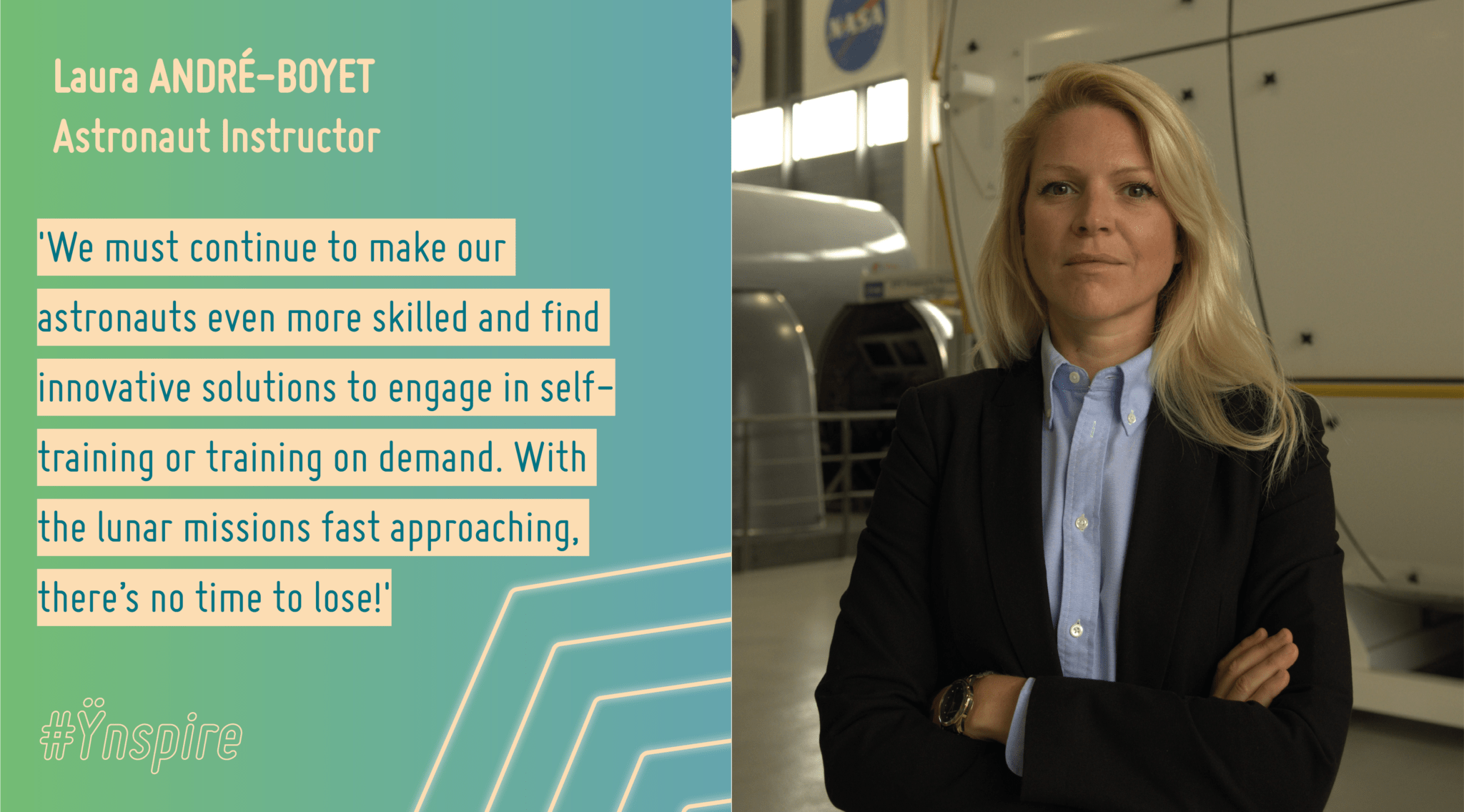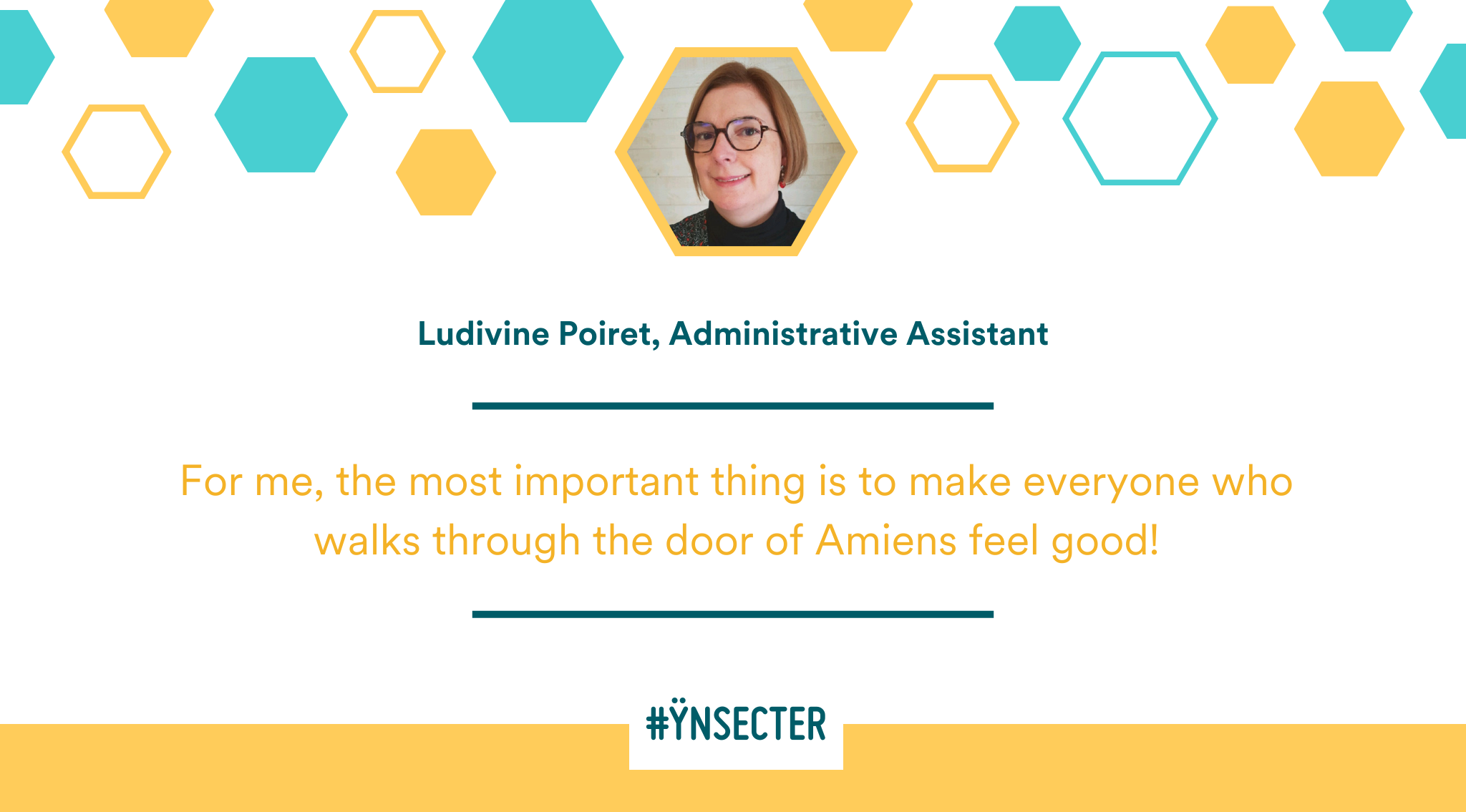In simple terms, can you explain your job?
My job is multi-faceted: as an Astronaut Instructor, I train both the astronauts that fly and people that stay on the ground. People often think that it’s important to only train those who go into space, but actually, there are dozens of people that stay on Earth who need specific training too. My mission with the astronauts is to equip them with the knowledge and skills they need to be fully prepared for their mission. There are lots of them, all of different nationalities. Today, there are three different levels of training: basic, specialist and mission. I am involved in all levels, but I mainly help in training for missions, i.e. everything the astronaut has to do while in the air. The training sessions are conducted in English and are filmed to be reconsulted in case of problems during the mission. Before the actual training begins, I have to be trained in a training phase myself to be able to answer any questions the astronauts might have. I receive training from scientists and experts, and then I create the training plan. A high level of details is required as it has to be validated by experts beforehand. When the plan is ready, I present it to a jury. The training is so demanding that it is usually only done with one astronaut at a time. If I had to summarize, my job is similar to that of a teacher but with a class of a single student.
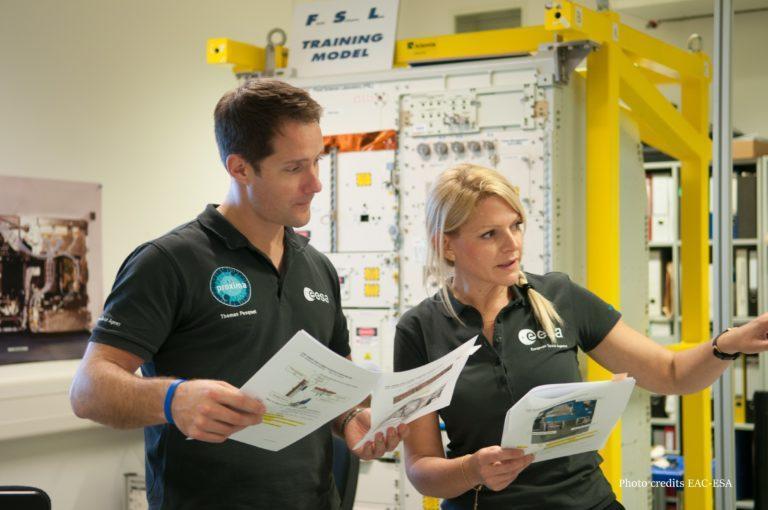
What was the training to become an astronaut instructor?
So far, there is no specific training to become an astronaut instructor. I didn’t even know that the job existed until I was offered it. Working in this field was not an early vocation at all! Even as a child, I was never interested in space. Instead, I studied physiology and then engineering at the Ecole Polytechnique of Grenoble where I combined medicine and engineering. I also spent some time in Japan and completed a double degree in Montreal. I could have gone back to medical school when I came back, but I was eager to start my career. So I stumbled into the space industry while doing my end-of-study internship. I had a real revelation during this experience: I really liked the people I met there and, above all, I realized that I could bring something to an industry that I previously didn’t know anything about!
How long does it take to train an astronaut? What are the steps you are involved in?
After they are selected, astronauts undergo basic training for about 18 months to bring them up to speed. They have to learn how to fly a plane for those who don’t already know how to do it, speak Russian, launch a rocket, do stitches, etc. It’s a very intense phase, but what’s nice is that great friendships are also often formed! They then certify as astronauts but continue training until they are assigned to the next mission, because they have to maintain their skills. Much of my work is done during the last phase of training, during the mission stage, which lasts about 18 months. Our trainings all have more or less the same structure: a theoretical part, which covers the necessary scientific knowledge and defines the training’s objectives and outcomes; technical/manual execution; and finally the scientific protocol to ensure guarantee that the collected data is of sufficient quality.
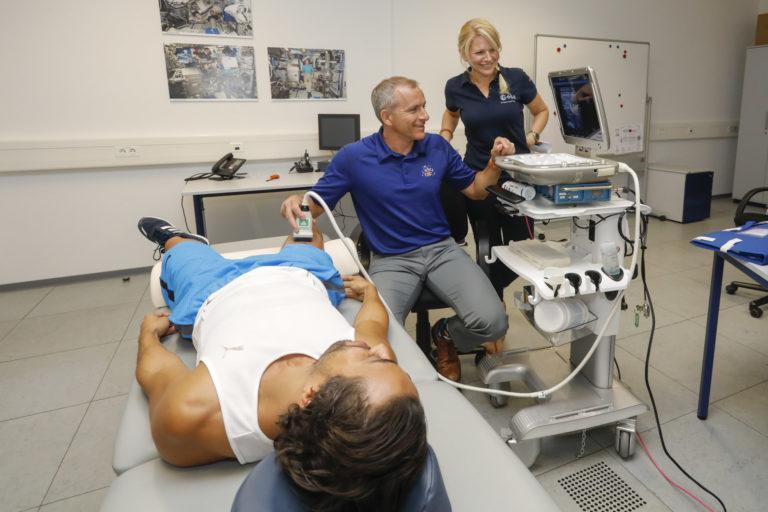
Photo credits: EAC-ESA Saint Jacques ECHO
What are the essential skills to do your job?
You have to be flexible as the industry is constantly changing. Some people need to evolve professionally with a well-defined framework, but here it is impossible because we have to take into account and adapt to external constraints such as geopolitics, international agreements, but also the astronauts themselves; you have to be able to put yourself in their shoes, to better prepare them and help them face challenges. For my specific job, is imperative to love teaching and passing on knowledge! Of course you need the theoretical skills, but empathy is essential. Having strong principles and values also has its place. I don’t think it is necessary to be passionate about this universe to be part of it, but you must be a good ambassador. You have to show the importance of sending astronauts into space and be aware of this responsibility.
Have you ever thought about becoming an astronaut yourself? Was it just a desire to teach?
I never wanted to be an astronaut. It’s not for me, and I don’t see it as the ultimate end game in this industry. In actual fact, it allows me to have a healthy relationship with the astronauts I train because I don’t envy them. I have also always been interested in teaching: my mother was a teacher, and my father loved passing on his wisdom! Learning new skills fascinates me, I find learning almost magical!
You are very involved in educational projects that encourage young people to study science, why is this important to you? Could you tell us more about it?
When I was younger, I struggled to make decisions about my future. I had some failures, but I was also lucky enough to be guided and advised by good people. My gratitude for this process is what has made me want to give back. I talk to young people as often as I can to make them understand what inspiration is. We live in a country where we are privileged in terms of access to education, but we need to stimulate creativity and learn to innovate again. I try to share the values that simplify my life and help me daily, such as authenticity! It allows me to remain true to myself, be anchored in reality and create real relationships based on trust!
Has your job and your links with astronauts changed your vision of the Earth regarding the issues of our time?
My job is very tapped into a wide range of issues, including ecology, sustainability, and the fragility of our systems. We also understand better the industry’s costs and purpose. By working in this field, you get to know a whole new world about which almost nobody communicates. Even today, I don’t think we communicate enough about the importance of astronauts and what they do for humanity. We often receive alerts about debris moving around in space, the frequency of which is alarming and makes us very aware of the dangers linked to space, especially related to current events with space tourism. It is important not systematically refuse the ideas coming from the commercial/business development teams, but it is essential to clearly communicate on the risks generated by this type of activity to avoid danger.
What are your next missions and challenges? A mission to Mars?
For now, I will keep training astronauts for their next missions. After that, we will have to learn more and more about how to allow them to cohabit with the tourists of the International Space Station and maintain a balance that does not compromise the missions of the professional astronauts or, put anyone in danger. They will also have to be trained by us. Regarding future destinations, I am personally working on the challenges of future lunar missions. We must continue to make our astronauts even more skilled and find innovative solutions to engage in self-training or training on demand. We are looking at innovative technologies such as artificial intelligence and augmented reality to help us meet these new demands. With the lunar missions fast approaching, there’s no time to lose!
